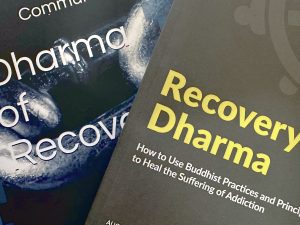Rare it is to be born into human life; difficult is the life of mortals. Hard to come by is an opportunity to hear the Truth; harder still is the arising of an Awakened One.
Dhammapada 182
Let’s be honest. We are here because life has been difficult. We sought a path to mitigate that suffering and there were lots of options out there. The New Age sections of our nearly defunct bookstores are testaments to humanity’s suffering and seeking. For one reason or another, we settled on the Dharma. It spoke to us. It still speaks to us.
The longer it speaks to us the more we’ve come to realize that the practice of Dharma is no quick fix. No instant gratification. No money-back guarantee. There is no weekend workshop for achieving nirvana. No daylong to eliminate dukkha. No meditation that just fixes ‘everything’. Nope. The Dharma is hard work.
So why do we do it, then? Because it works. And it works in direct proportion to the amount of effort and energy we put into it.
Have you ever heard the phrase, “Dirty hands, clean money?” It refers to the fact that we can be proud of what we earned so long as it was earned honestly and diligently. The Dharma is no different. We put an honest amount of effort into the practice and we get a little bit less suffering with a little bit more insight. One sit at a time. One act of kindness at time, one act of restraint at a time, one moment of renunciation at a time.
We aren’t monks or nuns. We aren’t saints. We certainly aren’t enlightened. There may come a day when some of us will become all of those but, for now, we’re part of the lay sangha. We’re householders. We have jobs, bills, and families. Fortunately, the Dharma is for us, too.
Let’s get our hands dirty. Nothing worth its salt comes easy.





